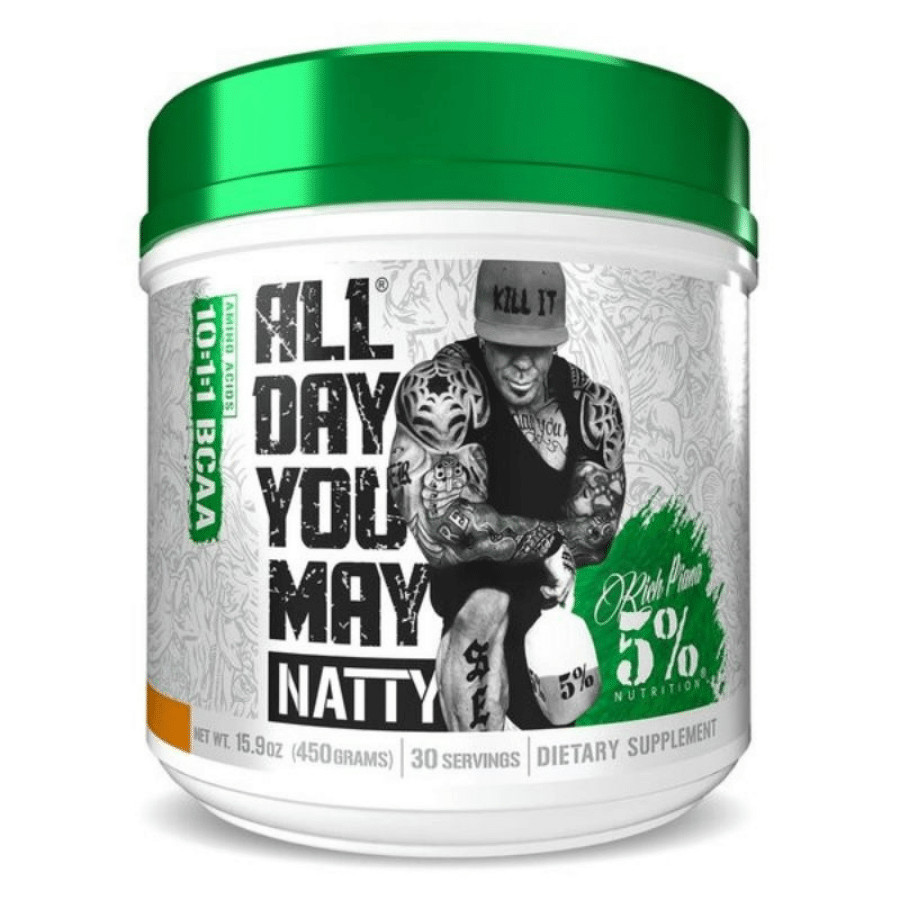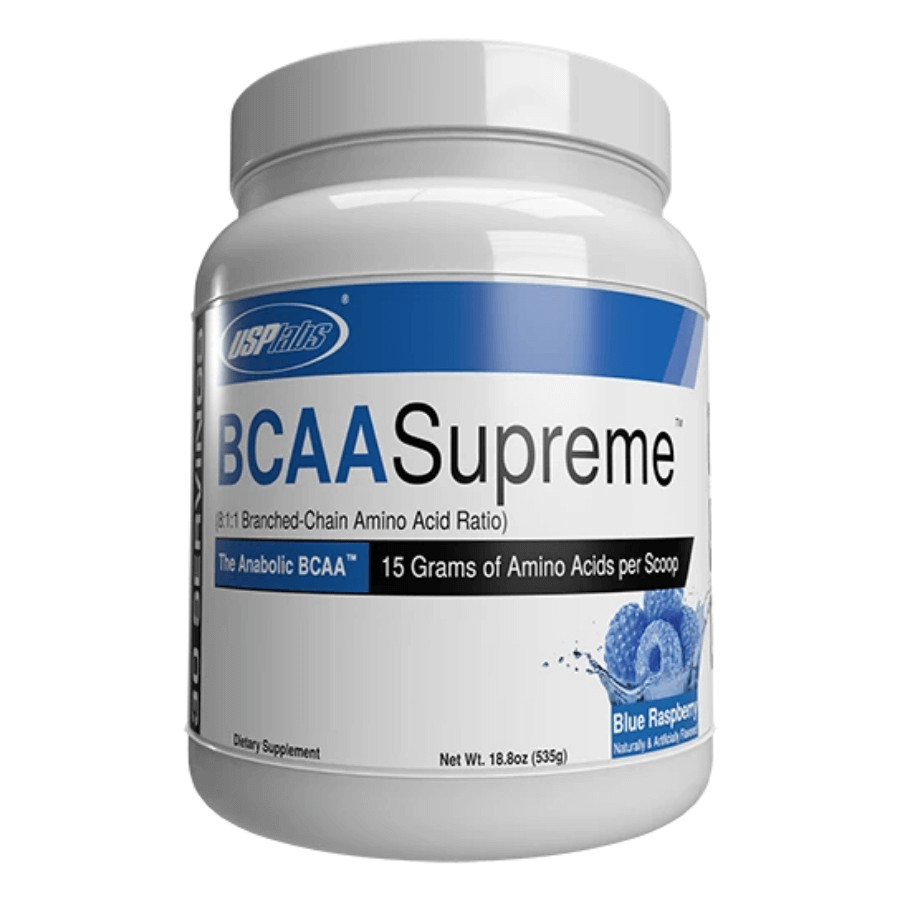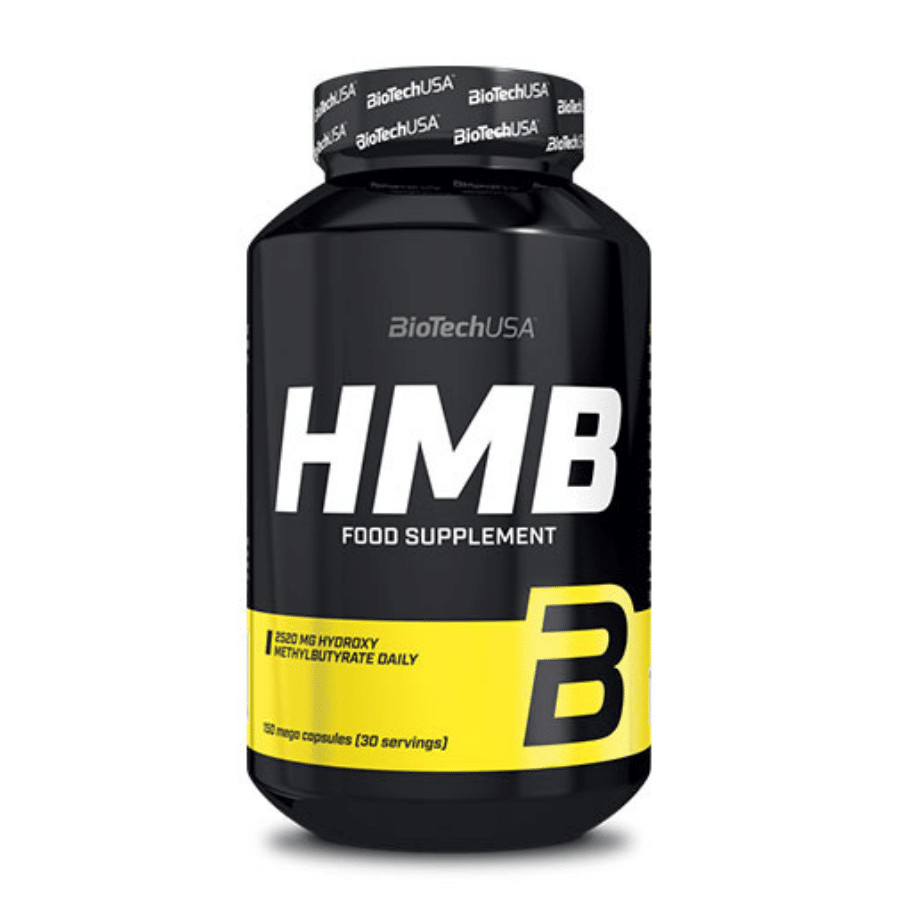bcaa
Showing all 10 results
-
BuyRead More
NutriFitt Intra Fitt 375g
£26.51Read MoreRead MoreBuyRead MoreRead MoreUSP Labs BCAA Supreme 535G
£12.72Read MorebuyHMB - 150 mega caps
£17.70There is an increased demand for physically active people for several nutrients that cannot always be supplied in sufficient amounts with food. Moreover, eating vast quantities of food puts a lot of strain on the digestive system, and the stomach has limited capacity. Fortunately, several dietary supplements are available, which can contain various substances in concentrated form. These include vitamins, mineral salts, fatty acids, proteins, carbohydrates, multiple phytonutrients, etc. BCAA is very popular among athletes, but this supplement can also be used by amateurs, regular gym-goers.
What is BCAA, and how does it affect the body?
BCAA is the English abbreviation for branched chained amino acids. This term refers to exogenous amino acids, namely valine, leucine, and isoleucine. The body can produce endogenous amino acids on its own. Still, unfortunately, those belonging to the exogenous group have to be supplied externally with food. In a BCAA dietary supplement composition, leucine is predominant, as it makes up two parts. At the same time, isoleucine and valine are two times less. In leucine, we can talk about increasing protein synthesis, enhancing the action of insulin. This amino acid guards the balance of carbohydrate metabolism, affects glucose metabolism, normalizes blood cholesterol levels. Leucine is also essential for reducing fat tissue, which is the enemy of every person training. It makes it easier to lose weight, helps build and regenerate muscles. It’s also worth knowing that it reduces the destructive effects of the stress hormone, calming the adrenal glands, which are very sensitive to cortisol.
In turn, isoleucine is essential for correct regeneration processes in the body. It regulates blood glucose levels and may be an alternative energy source in its deficiency; the same applies to fatty acids. Isoleucine promotes energy storage in muscles, prevents glucose deposition in fat cells. Valine eliminates fatigue, protects against protein breakdown, has a positive effect on brain function. It takes part in energy production, accelerates repair processes. Valine is an amino acid that improves the functioning of the nervous and muscular systems, increases the endurance of the organism, and protects it from the damaging effects of free radicals.
When is it worth using BCAA?
BCAA is a dietary supplement that can be safely recommended to physically active people who want to improve their body shape and sports performance. It is not a product intended exclusively for bodybuilders building massive muscle mass. It is used by advanced athletes, people just starting out at the gym, and novice physical activity enthusiasts. BCAA is especially recommended to people who do strength training, bodybuilding, and endurance sports. The amino acids contained in BCAA protect muscles against catabolism. During intensive exercise, muscle fibers consume energy by breaking down amino acids, so supplying them externally helps protect what has already been built into the body. Training effects would be satisfactory if the amino acids that are part of the muscles were broken down.
How should you use BCAA?
BCAAs are recommended before exercise to improve exercise capacity because the amino acids they contain positively affect energy levels. It is assumed that the optimal daily dose is from 0.5 g to 1 g of BCAA in powder form for every 10 kg of body weight. It is essential to follow the manufacturer’s recommendations and not to exceed the daily dose. The number of essential amino acids you take should always be selected individually, depending on the type of physical activity you do and your training intensity. During intensive exercise, you can safely increase the dose of BCAA, of course, without exceeding the recommended amount. It is worth noting right away, however, that the supplement is safe to use, and no adverse side effects have yet been demonstrated. However, they may appear if you start to overdo it, which applies to any food. You can even harm yourself with water if you drink too much of it, especially at one time.
Dosage of BCAA:
BCAAs should be taken before training, about an hour before exercise. This will protect muscles from breakdown and help build new muscle mass. It’s a good idea to divide the daily dose of the supplement into two portions and take the remaining portion several minutes after training. BCAA can also be used on non-workout days, in the morning or evening. According to the recommendations, the best effects from branched amino acid supplementation can be achieved when taken after a meal. However, suppose no workout is scheduled on a given day. In that case, you can take the supplement on an empty stomach before going to bed. BCAA took on an empty stomach to help replenish energy reserves and prevent the breakdown of amino acids.
On the other hand, if taken at night, it prevents catabolism. Therefore, it’s worth taking BCAA before exercise to reduce muscle soreness and improve muscle nutrition. On the other hand, when taken after training, it facilitates regeneration, prevents soreness, and builds directly into muscles.In our online store, you can find different variants of BCAA. Still, there’s also a range of other valuable supplements to take before, during, and after training. These include prohormones, fat burners, glutamine, creatine, stimulators, testosterone boosters, vitamins, minerals, liver and joint support supplements, gainers, protein supplements, etc.
In conclusion, why should you reach for BCAAs?
If you are looking for a safe dietary supplement increasing protein synthesis and muscle growth, BCAAs are worth considering. It has an anabolic and anti-catabolic effects. Exogenous amino acids reduce the feeling of fatigue, accelerate muscle regeneration, reduce post-workout muscle soreness, improve concentration, and improve the body’s efficiency during exercise. BCAA promotes the formation of alanine and glutamine, regulates leptin levels and metabolism, aid fat loss, and prevents muscle loss. In addition, amino acids make muscle mass grow.
Age Verification
You must be 18 years old to enter.









